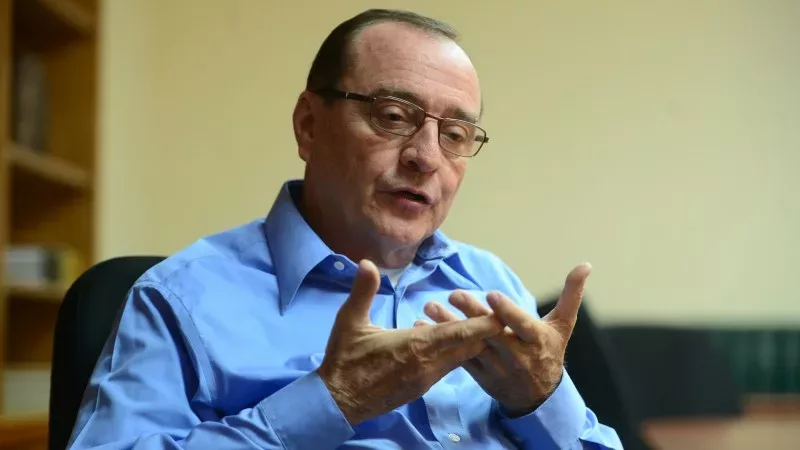The recent reforms approved by the Assembly to the Telecommunications Intervention Law go in the direction of creating a “Police State” in El Salvador to have “greater control over the citizenry,” said Father Andreu Oliva, rector of the Central American University “José Simeón Cañas” (UCA) in an interview with the university’s Radio.
“In a police state, the security forces have the power to control the citizens, with a great deployment of surveillance mechanisms. Everything in our country is pointing toward the constitution of a Police State”, said Oliva.
He added that all the government’s actions show that it is designing an ever-stronger control apparatus over the population.
This situation, he said, can help the security of citizens but also limit the freedoms of the population.
In this regard, the former rapporteur for Freedom of Expression, Serafín Valencia, explained to El Diario de Hoy that 2022 had been characterized by consolidating all the legal tools to be able to take to court and imprison journalists who are uncomfortable with the government.
Oliva also referred to the amendments to create “guarantee judges” who will be 24 hours a day and seven days a week at the service of the Director of the Listening Center to give the green light to the requests made by the Prosecutor’s Office and the Director of the Listening Center himself to intercept the telecommunications of any person in just 4 hours.
“The problem is that we are facing a judicial system that has lost the little independence it had and that it is a judicial system that is at the service of the Executive, and therefore it is very likely that they are looking for judges who do not have major difficulties in approving all the requests that come to them on requests for interceptions in telecommunications,” questioned Oliva.
“Todo en nuestro país va apuntando hacia la constitución de un Estado policial”, dice padre Andreu Oliva, de la UCA
Las recientes reformas aprobadas por la Asamblea a la Ley de Intervención de las Telecomunicaciones van en dirección a crear en El Salvador un “Estado policial”, para tener “mayor control de la ciudadanía”, afirmó el padre Andreu Oliva, rector de la Universidad Centroamericana “José Simeón Cañas” (UCA) en entrevista con la Radio de esa universidad.
“En un Estado policial son los cuerpos de seguridad los que tienen el poder de controlar a los ciudadanos, con un gran despliegue de mecanismos de vigilancia. Todo en nuestro país va apuntando hacia la constitución de un Estado Policial”, aseveró Oliva.
Añadió que todas las acciones que ha ido ejecutando el gobierno van mostrando que se está diseñando un aparato de control sobre la población cada vez más fuerte.
Esta situación, según dijo, puede ayudar a la seguridad de la ciudadanía pero también limitar las libertades de la población.
Al respecto, el ex relator de Libertad de Expresión, Serafín Valencia, explicó a El Diario de Hoy que 2022 se ha caracterizado por consolidar todas las herramientas legales para poder llevar a los tribunales y encarcelar a periodistas que son incómodos al gobierno.
Oliva también se refirió a las enmiendas para crear “jueces de garantía” que estarán las 24 horas del día y los 7 días de la semana al servicio del Director del Centro de Escuchas para dar luz verde a las peticiones que haga la Fiscalía y el propio director del Centro de Escuchas para interceptar las telecomunicaciones de cualquier persona en tan solo 4 horas.
“El problema es que estamos ante un sistema judicial que ha perdido la poca independencia que tenía y que es un sistema judicial que está al servicio del Ejecutivo y por tanto es muy probable que se busquen a jueces que no tengan mayores dificultades para ir aprobando todas las solicitudes que le lleguen sobre peticiones de intervenciones en las telecomunicaciones”, cuestionó Oliva.

